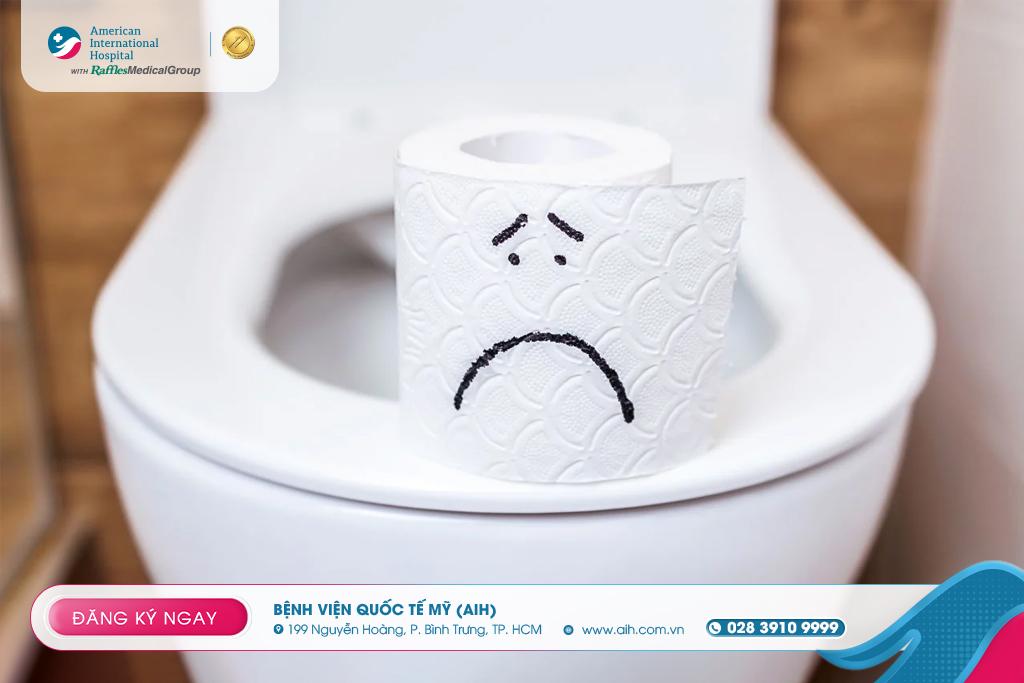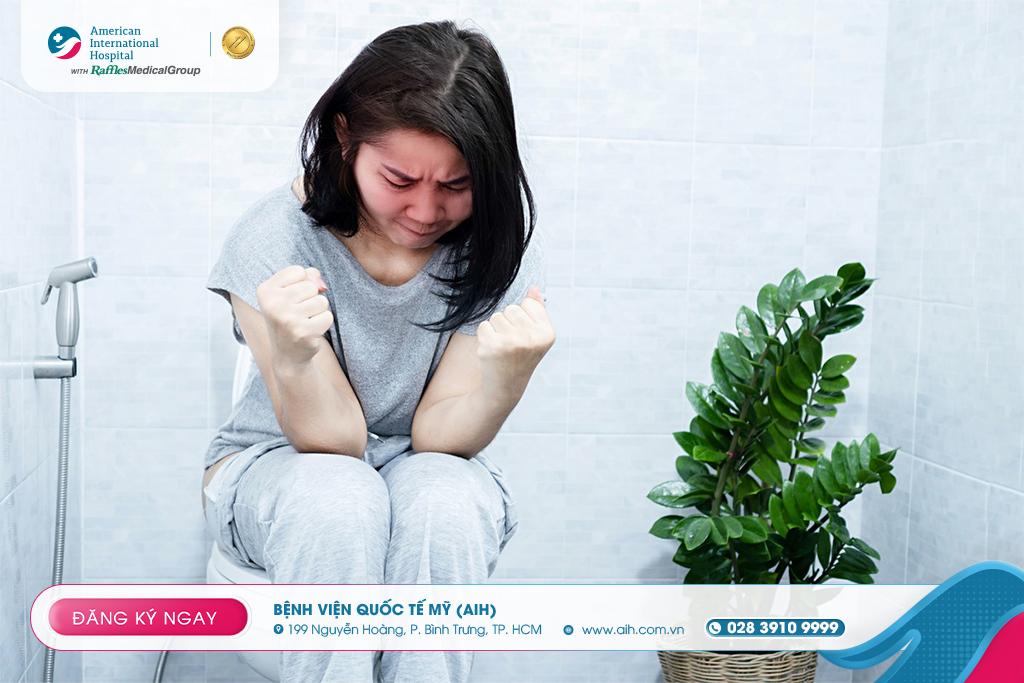Thông báo
Vui lòng điền vào thông tin bên dưới
Khẩn cấp
CHRONIC CONSTIPATION – ITS WIDESPREAD IMPACT ON DIGESTIVE HEALTH AND QUALITY OF LIFE
When is constipation considered chronic?
Constipation is one of the most common digestive disorders. This condition is diagnosed when bowel movements occur fewer than three times per week, stools are hard, small, and difficult to pass, and straining is often required. If these symptoms persist for more than three weeks or recur for months, interfering with daily activities, it is considered chronic constipation – a condition that should not be overlooked.
Common causes
Constipation often results from disrupted bowel peristalsis or unhealthy lifestyle habits:
Low-fiber diet: A lack of vegetables, fruits, and whole grains causes stools to become dry and difficult to move through the intestines.
Inadequate fluid intake: When the body lacks fluids, the colon absorbs too much water from the stool, making it hard and dry.
Lack of physical activity: A sedentary lifestyle reduces intestinal peristalsis.
Ignoring the urge to defecate: Habitually delaying bowel movements causes stool to remain in the colon longer.
Lifestyle changes: Pregnancy, aging, or irregular routines and travel can contribute to constipation.
Medical conditions or medications: Irritable bowel syndrome, hypothyroidism, intestinal obstruction, or side effects of certain medications.

Common symptoms
Fewer than three bowel movements per week.
Hard, dry, lumpy stools.
Straining or pain during defecation.
Abdominal pain, bloating, or distension.
A sensation of incomplete defecation.
How does chronic constipation affect health?
Prolonged constipation can lead to:
Digestive discomfort: Abdominal pain, bloating, and a feeling of fullness.
Anorectal complications: Hemorrhoids, anal fissures, and bleeding during bowel movements.
Reduced quality of life: Fatigue, loss of appetite, difficulty concentrating, and psychological stress.
Risks in the elderly: Dehydration, malnutrition, increased risk of urinary tract infections, and even cognitive impairment due to electrolyte imbalance.

Complications of Chronic Constipation
If prolonged, constipation can lead to several serious health problems:
Hemorrhoids: Caused by repeated straining during bowel movements.
Anal fissures: Small tears that cause pain and bleeding.
Rectal prolapse: The rectal mucosa protrudes outside the anus.
Fecal impaction: Hard, dry stool accumulates in the rectum and becomes difficult to pass – often seen in the elderly and children.
When should you see a doctor?
You should consult a doctor if:
Constipation lasts for more than three weeks.
Constipation is accompanied by severe abdominal pain, rectal bleeding, or unexplained weight loss.
Constipation significantly impacts your quality of life or requires continuous use of laxatives.

Diagnosis and Evaluation
Medical history: Duration of constipation, bowel movement frequency, stool characteristics (hard / small / dry), degree of straining, sensation of incomplete evacuation, and any anal pain or bleeding.
Lifestyle review: Diet, physical activity, and bowel habits.
Medication review: Medications that may contribute to constipation.
Anorectal examination if symptoms such as anal bleeding, pain, or fissures are present.
Additional tests when needed: Complete blood count, thyroid function tests, electrolyte levels, and investigations for endocrine or neurological causes.
Further assessments in selected cases: Colonoscopy for patients aged ≥50 or with cancer warning signs; transit studies; pelvic floor function evaluation.
Management and Prevention
Patients can take proactive measures to prevent and control constipation through:
1. Non-pharmacological approaches
Increase dietary fiber intake: Consume more vegetables, fruits, and whole grains.
Drink enough water throughout the day.
Exercise regularly: walking or light workouts.
Establish bowel habits: Try to have bowel movements at a regular time each day and avoid holding in stools.
Lifestyle modification: Manage stress and maintain consistent eating habits.
2. Medications and Interventions When Needed
Use of safe laxatives under medical supervision: Stool softeners, bowel stimulants, or enemas in cases of severe constipation.
For pelvic floor dysfunction: Consult a physiotherapist for biofeedback therapy to retrain proper bowel movement techniques.
Monitor and adjust medications that may contribute to constipation.
In the presence of alarming signs (bleeding, weight loss, sudden changes in bowel frequency, or abnormal stool appearance), colonoscopy is recommended to rule out cancer or other serious gastrointestinal diseases.

Prevention
Some preventive measures include:
Nutrition: Eat plenty of fiber-rich foods such as fruits, vegetables, and whole grains.
Drink adequate amounts of water and avoid beverages that can cause dehydration.
Physical activity: walking or exercising regularly.
Healthy bowel habits: Do not ignore or delay the urge to defecate.
Regular monitoring for those with underlying endocrine or neurological conditions, or those taking medications with side effects.
Seek medical advice if constipation persists for more than three weeks, or if warning signs such as blood in stool, severe abdominal pain, or weight loss occur.
Chronic constipation is not a minor issue – when prolonged, it can seriously impact overall health and quality of life and may even indicate an underlying disease. Early recognition, accurate diagnosis, and proper medical management (combining lifestyle modification, diet, exercise, and medication when necessary) are essential. With regular medical care and cooperation between patients and healthcare providers, the frequency and severity of chronic constipation can be significantly reduced.
Reference:
--------------------
Tìm kiếm
Tin tức
Bác sĩ






































































Để lại bình luận